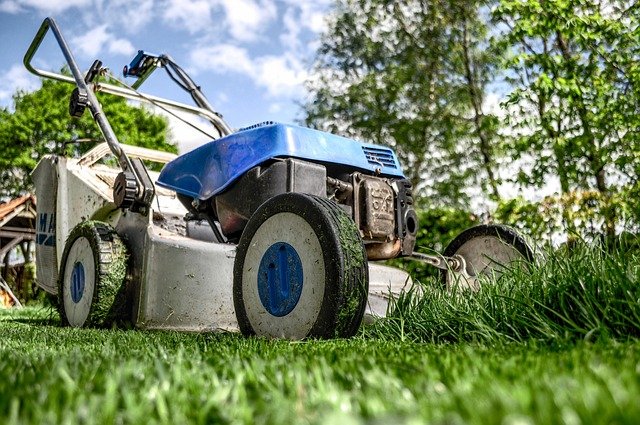Discover Landscaping Jobs in Switzerland and Explore Working Environments
If you live in Switzerland and speak English, you can explore a rewarding career in landscaping. Learn about the various roles, from garden design and maintenance to sustainable landscaping projects. Discover the working environments, conditions, and opportunities to develop practical skills while contributing to beautiful outdoor spaces across Switzerland.

Key Landscaping Roles and Responsibilities in Switzerland
The landscaping profession in Switzerland encompasses various specialized positions, each with distinct responsibilities and required qualifications. Garden designers focus on creating aesthetic plans for outdoor spaces, considering factors like local climate, soil conditions, and client preferences. Landscape technicians implement these designs through activities such as planting, irrigation system installation, and hardscape construction. Maintenance specialists ensure the ongoing health and appearance of established gardens and landscapes.
Swiss landscaping work often involves additional considerations due to the country’s topography and climate variations. In alpine regions, professionals must understand erosion control and plant species that thrive at higher elevations. Urban landscapers typically work on smaller spaces requiring creative solutions for maximizing greenery in limited areas. Public space landscapers maintain parks and recreational areas according to municipal standards and environmental regulations.
It’s worth noting that professional landscaping in Switzerland generally requires formal education or apprenticeship training. The Swiss educational system offers vocational training programs specifically for landscape gardening (Landschaftsgärtner/Landschaftsgärtnerin), which combine classroom learning with practical experience over a three to four-year period.
Working Conditions and Environment for Landscaping Professionals
Landscaping work in Switzerland typically involves a combination of outdoor physical labor and, depending on the position, design work in office settings. The profession follows seasonal patterns, with peak activity occurring from spring through autumn. Winter months often focus on planning, design work, and maintenance of equipment, though snow removal may become a significant task during this period.
Physical demands vary by role but generally include lifting, bending, and extended periods of standing. Landscape professionals regularly work with various tools and machinery, from hand tools like pruners and shovels to power equipment such as lawn mowers and tillers. Some specialized positions may require operation of heavy machinery for larger projects.
Weather conditions significantly impact the work environment. Swiss landscapers must adapt to working in alpine conditions, urban environments, and everything in between. Temperature fluctuations, precipitation, and elevation changes all affect working conditions throughout the year. Safety considerations include proper equipment usage, appropriate clothing for weather conditions, and adherence to occupational health regulations.
Skill Development and Career Opportunities in Landscaping
Entry into the Swiss landscaping profession typically begins with formal education or apprenticeship programs. The Swiss vocational education system offers specialized training for landscape gardeners through a combination of practical work experience and classroom instruction. Higher education options include degrees in landscape architecture, horticulture, or related fields from Swiss universities of applied sciences.
Career advancement often follows several potential paths. Many professionals progress from general landscaping positions to specialized roles in design, project management, or business ownership. Continuous learning and certification in specialized areas such as sustainable landscaping, irrigation systems, or alpine gardening can enhance career prospects. Some landscapers choose to specialize in specific types of environments, such as private gardens, public parks, or commercial properties.
The Swiss landscape profession values ongoing education to keep pace with evolving techniques, environmental considerations, and client expectations. Professional associations such as JardinSuisse offer continuing education opportunities, networking events, and resources for those in the field. Technology adoption, including design software, irrigation control systems, and sustainable practices, represents an increasingly important aspect of professional development.
Economic Considerations in Swiss Landscaping Careers
The landscaping profession in Switzerland generally offers stable employment prospects within the broader construction and maintenance sectors. Compensation varies based on factors including experience level, specialization, region, and whether one works independently or for an established company.
| Position Type | Experience Level | Approximate Annual Salary Range (CHF) |
|---|---|---|
| Apprentice/Trainee | Entry-level | 15,000 - 25,000 |
| Landscape Gardener | 2-5 years | 50,000 - 65,000 |
| Senior Landscaper | 5+ years | 65,000 - 80,000 |
| Landscape Designer | Specialized | 70,000 - 90,000 |
| Landscape Architect | Advanced degree | 80,000 - 120,000+ |
Salary estimates mentioned in this article are based on the latest available information but may change over time. Independent research is advised before making financial decisions.
Regional variations exist within Switzerland, with urban areas like Zurich, Geneva, and Basel typically offering higher compensation levels but also higher living costs. The economic outlook for the landscaping sector remains relatively stable in Switzerland, supported by ongoing demand for both residential and commercial landscaping services. Factors influencing future prospects include increasing interest in sustainable landscaping practices, urban greening initiatives, and the continued importance of outdoor spaces for Swiss residents.
Regulatory Framework and Industry Standards
Swiss landscaping professionals operate within established regulatory frameworks that govern aspects ranging from plant protection to workplace safety. Environmental regulations impact material selection, waste management, and water usage practices. Working with certain chemicals and equipment requires specific certifications or permits, and landscapers must remain current with changing environmental standards.
Industry associations establish quality benchmarks and professional standards. JardinSuisse, the Swiss association for horticulture and landscaping businesses, provides guidance on best practices and represents industry interests. Sustainability considerations have become increasingly important, with growing emphasis on native plantings, water conservation, and ecologically sound maintenance practices.
Understanding these regulations and standards is an educational component of the profession rather than a prerequisite for specific employment opportunities. The information provided here offers context about the professional landscape without implying the availability of specific positions.
The landscaping profession in Switzerland combines artistic creativity with technical knowledge and physical skill. Those with interest in this field can benefit from understanding the various roles, working conditions, and development paths available within this diverse industry. This article has presented an educational overview of the Swiss landscaping profession, intended to provide general knowledge rather than specific employment opportunities.




